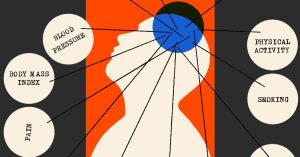Time-Poverty is Identified as the New Dementia Risk Factor
Eat better, exercise more and stay socially active is a great way to protect our brains from dementia. But a growing chorus of scientists now warns that one of the most powerful and overlooked risk factors may be something far less tangible – Time Poverty.
A new study published in The Lancet Healthy Longevity identifies “time poverty” as an emerging public health threat, with effects comparable to poor diet or lack of exercise. The term describes a chronic state of having too many obligations and too little time, leaving people unable to rest, connect, or care for themselves.

Time is a resource as vital as income, and its scarcity can silently undermine brain health. Because a clock never stops.
Time poverty affects people across social classes, but it hits hardest among those working long hours in low-paying or unpaid jobs. Women in particular, bear the brunt of juggling paid employment with the invisible weight of domestic and caregiving responsibilities.
The scientists argue that the lack of discretionary time creates a no-choice trap. Working fewer hours risks income loss. Yet, working more hours leaves no room for sleep, exercise, or medical care. This exhaustion over years, may literally change the brain.
Researchers analyzed data from epidemiological and neurological studies and found that those living with chronic time scarcity were more prone to cognitive decline. The study estimates that adults need at least 10 hours a day for essential brain health activities such as sleep, meals, movement and social connection. Even then, modern life and its demands rarely allows that. Some fear the cycle-of-poverty may catchup in time.
Income and time poverty often reinforce one another. Those without financial security must work longer hours to survive, while their lack of time limits their ability to make better health or economic choices. In some school of thoughts, it is believe to be a cycle that traps people in both financial and cognitive decline.
Digital overload only compounds the issue. Constant connectivity blurs the boundaries between work and rest, eroding the few moments that people have to recover mentally. Rethinking health with a mindset of balanced justification.

The findings call for a major rethink in how healthcare and society approach dementia prevention. Simply telling people to “make time” for exercise or social engagement ignores structural barriers like unstable jobs, expensive childcare, and unreliable transport.
The scientists advocate for what they call –temporal justice-, a fairer distribution of time. This could mean policies such as flexible working hours, affordable childcare, improved public transport, and the legal right to disconnect after work.
Governments, they argue, must treat “temporal inequity” as seriously as income inequality. Because without time, even the best health advice is meaningless.
As a researcher puts it – “We can’t slow down the clock on aging, but we can give people back the time they need to live, think and thrive.”









